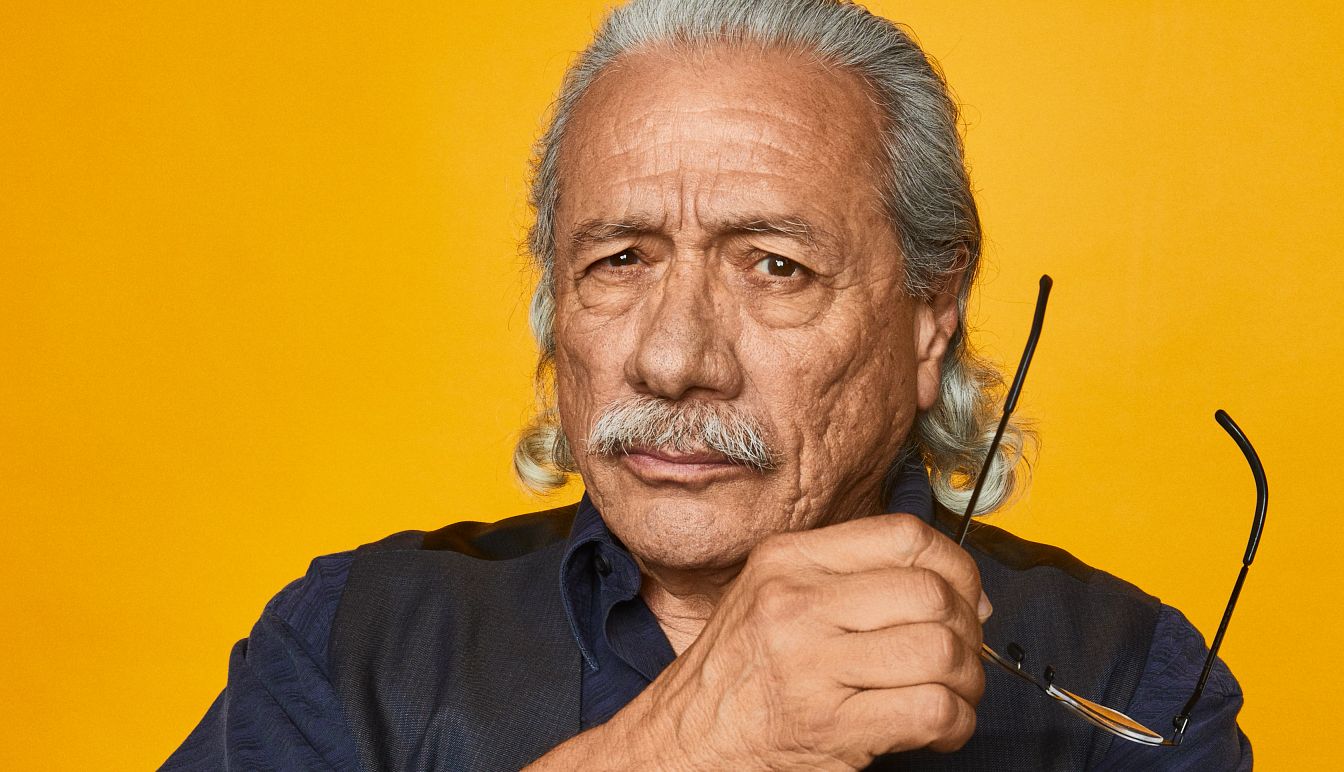AARP Hearing Center


Actor and activist Edward James Olmos is convinced that his spiritual convictions and healthy lifestyle were key to beating the throat cancer that brought him close to death a bit over a year ago.
“My faith, and the amount of exercise and things that I had done for my body before I went through this, was what helped me get through to the end,” says Olmos, 77, who underwent chemotherapy and radiation treatment after his diagnosis.
We recently caught up with Olmos during Vegas Tejano Takeover in Las Vegas, sponsored by AARP, where the actor – an Oscar nominee for his work on the dramatic 1988 film Stand and Deliver – spoke exclusively with AARP about the role of music in his life, his recovery from cancer, his healthy habits and the importance of living with purpose.
This interview has been edited for length and clarity.
Before you were an actor, you were the lead singer of a band. What role do you think music has played in your life, and in your health?
It’s an integral part of my life. Since the first time I really got in tune with music and listening to it on the radio, and then listening to people who played guitar or sang, whenever anybody was doing music, I just tuned in.
And it’s really good for health, mental health, especially spiritual health. It’s really good. It makes you really understand yourself. It gives you a sense of understanding the vibrations, the rhythms, the melody. It’ll make you happy. It’ll make you sad. It’ll make you think. It’ll make you do a multitude of things without you having to think about it. Just the expression and the feeling that you get when music is playing.
Recently, you shared how challenging it was to recover after your cancer treatment. How would you say your approach to health has changed because of that experience?
I think that what I was doing got me through it. Swimming every day for at least a mile, walking, eating right and not abusing yourself, made me able to sustain and go through this difficult moment in my life. It was very hard. Fighting cancer is something that takes an incredible amount of understanding of the human body itself, the mind and the way that you work. But as soon as you start doing chemo, you’re destroying your body, all that’s left is whatever’s left, because you have no more white blood cells; and the radiation also destroys your body.
So when they were done with months of radiation and months of chemo, that’s when it hit. That’s when it was the hardest. That’s when I felt like, Whoa, am I going to get through this? I really understood this to be something that I had nothing more than my faith, and that the amount of exercise and things that I had done for my body before I got this and went through this, was what helped me get through to the end. I lost between 65 and 70 pounds. And it was hardest on my family and my kids who helped me; and they took care of me, and it was hard on them.
It must have been scary, because when I looked at myself in the mirror, I was scared.































.jpg?crop=true&anchor=13,195&q=80&color=ffffffff&u=lywnjt&w=2008&h=1154)































More From AARP
How Edward James Olmos Realized Selena's Colossal Influence
Actor Edward James Olmos describes Selena Quintanilla’s outsized influence on music
Eva Longoria’s New Bilingual Series Offers a Stunning Escape
Apple TV+’s ‘Land of Women’ highlights intergenerational relationships15 History-Making Latinos at the Emmys
From Ricardo Montalbán, Rita Moreno and Edward James Olmos to Pedro Pascal, Latinos are leaving their mark on TV
Recommended for You